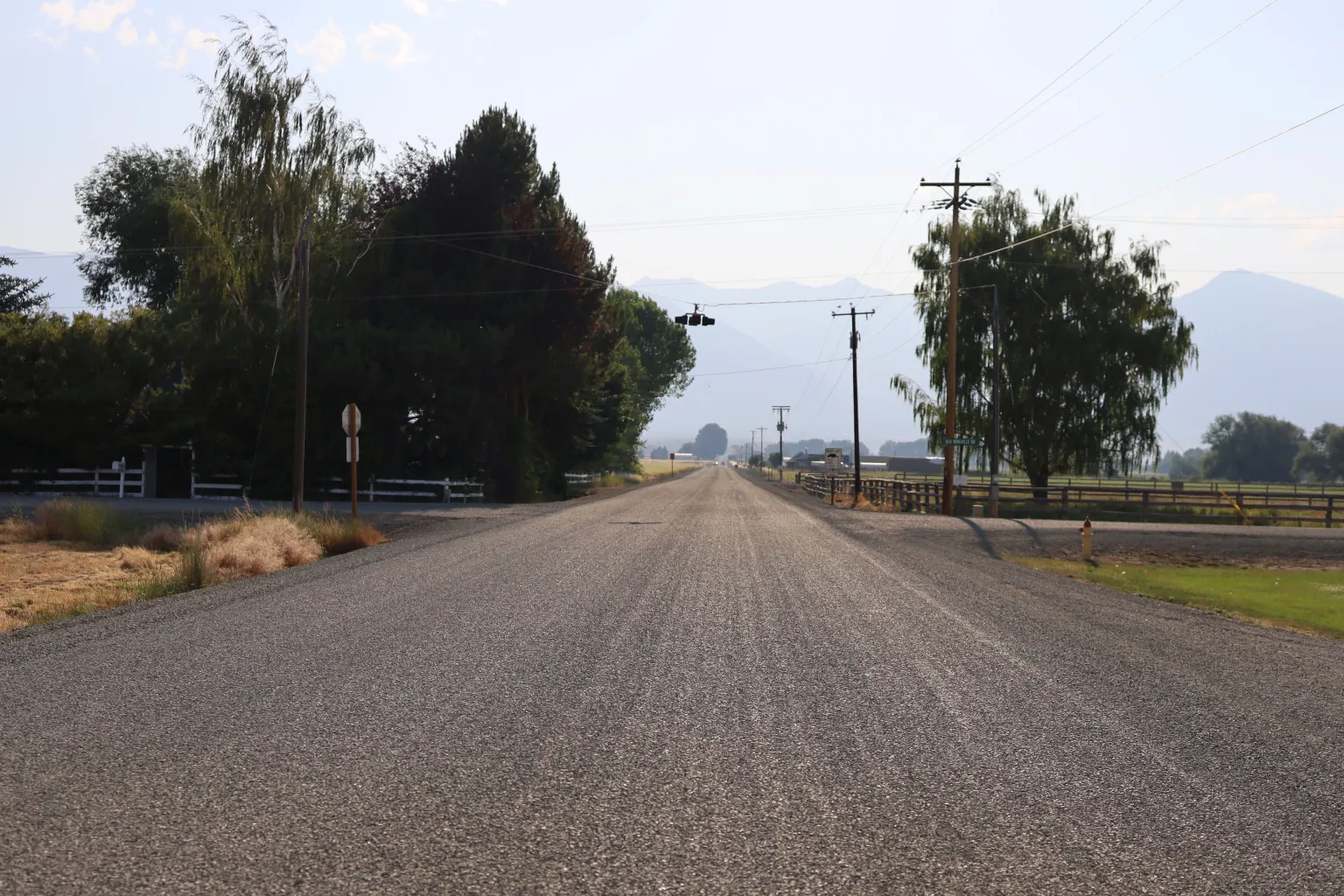Ore’s Baker City. In 2023, in this little Oregon town about an hour from the Idaho border, a hospital maternity ward closed, a common occurrence in rural America.
When Shyanne McCoy, 23, was pregnant, the nearest hospital with an obstetrician on duty was 45 miles away, across a mountain pass.
Last January, when McCoy started showing signs of preeclampsia, she believed that a larger hospital in Boise, which was two hours away, would be the best place for her to receive the care she need. Too far from home to risk leaving, she spent the last week of her pregnancy there before giving birth to her daughter.
After six months, she stated that it is evident to her that young women in rural areas like herself do not receive the health care they require.
Finding the right treatment to safely give birth in Baker City has swiftly taken precedence over worries about abortion, another medical service that is insufficient in the area, for McCoy and others. However, progressive lawmakers’ efforts to increase access to abortions in Oregon and other parts of the nation occasionally run afoul of rural constituents.
For instance, in Oregon, the absence of new abortion alternatives also means the elimination of state-funded maternity care.
When it comes to abortion, Oregon is regarded as one of the most restrictive states in the union. The state’s Medicaid system covers abortions, and there are no legal restrictions on when a person can get one. However, attempts to increase access have run against opposition and skepticism in the rural, predominately conservative regions that make up the majority of the state.
Elections in states like Nevada, where voters approved a ballot initiative in November aiming to enshrine abortion rights in the state constitution, have demonstrated this division. The proposition was rejected by residents in a number of rural counties.
In Oregon, Democratic state lawmakers were preoccupied with a proposed pilot program that would establish two mobile reproductive health care clinics in rural areas in the months preceding the announcement of the Baker City shutdown. Abortion services would be provided at the van-based clinics, according to the measure.
Republican state representative Christine Goodwin, who represents a seat in southern Oregon, described the idea as the most recent instance of metropolitan lawmakers informing rural officials about the needs of their areas.
Eventually, the pilot program for mobile health clinics was taken out of the measure that was being debated. This implies that Baker County, Oregon, will not have access to new abortion alternatives or state-funded maternity care.
Paige Witham, 27, a member of the Baker County health care steering committee and the mother of two children, including an infant born in October, stated, “I believe you would have an uprising on your hands if you expanded rural access to abortions in this community before you expanded access to maternal health care.”
After more than ten years of unit closures, a study that looked at around 5,000 acute care hospitals and was published in JAMA in early December revealed that by 2022, 52% of rural hospitals did not provide obstetrics treatment. Those closures can have serious health effects for young women, who are the group most likely to require prenatal care, and their unborn children.According to research, the chance that a newborn would be admitted to a neonatal intensive care unit, or NICU, increases with the distance between the patient and obstetric treatment.
Although she opposes abortion, Witham stated that she does not think the government should outright ban it. Abortion should stay legal, she argued, until the government offers far more assistance to young families, such as free child care and improved mental health services.
Discussions with a moderate timber company owner, a liberal school board member, members of the Republican Party chapter in Baker City, a local doula, a number of expectant mothers, and the director of the Baker County Health Department—many of whom were not adamantly against abortion—all yielded the same response: Please, no mobile clinics performing abortions here.
The concept of a mobile clinic that would offer birth control and information to residents in distant areas was appealing to Kelle Osborn, a nurse supervisor with the Baker County Health Department. The idea of offering abortion services in a mobile clinic did not excite her as much.
“Abortion services are not something that should just be provided from a mobile van,” she remarked. If the clinics were known to offer abortion services, she said, people in her conservative rural area would probably refrain from utilizing them for anything.
Osborn and Meghan Chancey, the director of the health department, stated that they would give more priority to a number of health care issues, such as the need for a dialysis clinic, an intensive care unit, and a general surgeon.
Rural areas’ limitations in accessing maternal and reproductive health care
Even in places where access to abortion is protected, rural residents nationwide typically have limited access to reproductive health care services of all kinds. A 2024 March of Dimes analysis found that over two-thirds of residents in maternity care deserts—all of which are in rural counties—must travel more than 30 minutes by driving to receive obstetric care. According to a statistical study by Axios, abortion care may be up to 700 miles away for residents in Southern states where legislatures have enacted abortion prohibitions.
Born and raised in Baker City, Nathan Defrees has been a medical professional since 2017. He works at a clinic that practices family medicine. He doesn’t perform abortions himself, but if a patient inquires about one, he tells them where and how to get one.
He claimed that doctors who provide that service in tiny places don’t have much privacy. For that, many of us are unwilling to forgo the remainder of our careers.
He also mentioned how few patients were asking for the service locally. In 2023, the Oregon Department of Public Health reported that just six residents of Baker County had an abortion. In the meantime, 125 locals gave birth that year.
In another rural area of the state, an obstetrician has decided to discreetly perform early-stage abortions upon request. The doctor requested anonymity because they were worried about the safety of their family in their tiny, traditional village.
According to the doctor, the notion that improved access to abortion is unnecessary in rural places is foolish. The doctor noted that those who are most in need of an abortion frequently lack access to any medical services that are not already offered in the community. A meth user who lacked the means to travel or arrange for an at-home medication abortion was the first patient the doctor performed an abortion on at the clinic.
Turning her away for treatment seems completely out of place. The doctor stated I had the tools and the training to do it.
According to Defrees, since the U.S. Supreme Court reversed Roe v. Wade, it has become simpler for people in Baker County to obtain an abortion.
In Ontario, Oregon, a new Planned Parenthood clinic was constructed 70 miles away in nearby Malheur County. Its main purpose was to serve the Boise metro region, but it also gave many people in rural eastern Oregon a new alternative.
Abortion is prohibited almost completely in 16 states, including Idaho. Idaho has had difficulty retaining its already limited number of fetal medicine physicians, similar to many other states that have banned the practice. According to Defrees, Baker City is also impacted by the loss of local knowledge.
The treatment approach for women who have a desired pregnancy but require a termination for medical reasons, for instance, is now much less obvious, he said. He mentioned that such people used to be able to travel to Boise. They can’t now. It puts us in a difficult situation.
The next closest place to get that kind of care is Portland, which is a 300-mile drive down a series of routes that can be dangerous in the winter.
According to Defrees, being pregnant in Baker City is far more frightening now than it has ever been.
One of the main programs at KFF, an independent source of journalism, polling, and health policy research, is KFF Health News, a nationwide newsroom that specializes in in-depth reporting on health-related topics. Find out more about KFF.Sign up for the free Morning Briefing from KFF Health News. This item is reprinted here under a Creative Commons license after first appearing on KFF Health News.
Note: Every piece of content is rigorously reviewed by our team of experienced writers and editors to ensure its accuracy. Our writers use credible sources and adhere to strict fact-checking protocols to verify all claims and data before publication. If an error is identified, we promptly correct it and strive for transparency in all updates, feel free to reach out to us via email. We appreciate your trust and support!

